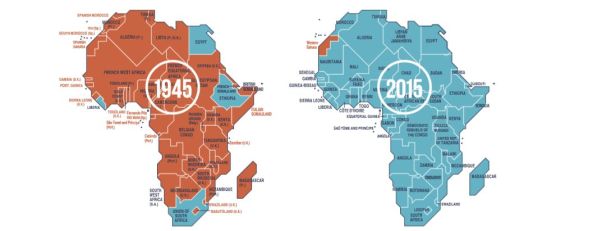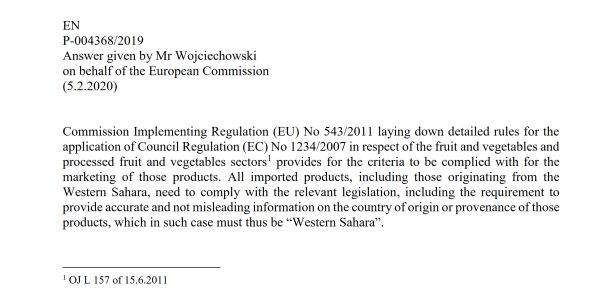
The European Parliament is currently reviewing a proposed agreement negotiated by the European Commission and Morocco, on Geographical Indications (GI).
A geographical indication is a distinctive sign used to identify a product as originating in a particular country, region or locality where its quality, reputation or other characteristics are linked to its geographical origin.
Famous examples are champagne, cognac, parmigian cheese, darjeeling tea, etc. Champagne can only be called champagne if it actually comes from the Champagne region in France. But also non-geographical names can be protected if linked to a particular place; e.g. Feta cheese is not named after a place but so closely connected to Greece that it is identified as a Greek product.
As such, GIs are a protective measure of economic and cultural value, to prevent misuse and counterfeiting.
The proposed deal would provide protection to around 3200 EU products, versus 28 Moroccan products; 14 wines and 14 agricultural products. At present, the list of products covered by the suggested deal does not seem to contain a product that comes from Western Sahara. Find the proposed text, including the list of registered GIs, here.
However, the list as presented by the European Commission is dated 9 January 2013. Some GIs that have been registered since, are not in the list. Morocco may have registered products originating in Western Sahara as a GI under its national legislation. Furthermore, if the agreement is adopted, it would be possible for Morocco to register Western Sahara products as eligible for a GI in the future. That registration would be an exclusive Moroccan affair, not requiring EU approval. The objective of these measures is to offer direct protection to the geographical indications registered by the parties on the basis of their own legislation.
As the former EU High Representative for Foreign Affairs and Security Policy, Catherine Ashton, stated in June 2011: "Morocco could register as geographical indications products originating in Western Sahara if they respond to the criteria fixed by its legislation in this field".
Western Sahara Resource Watch finds that the EU is losing all credibility in terms of respect for international law.
"It is a terrible irony that the EU in an agreement specifically about geographical indications fails to define the partner country they are dealing with. No states in the world recognise the Moroccan sovereignty over Western Sahara. It is a separate territory, a non-self-governing territory, pending a UN led decolonisation process", stated Sara Eyckmans, coordinator of Western Sahara Resource Watch.
WSRW believes that it should be a basic requirement that goods from Western Sahara cannot receive GI protection under this agreement with Morocco.
The GI agreement was ratified in Berlin on 16 January 2015 by EU Commissioner for Agriculture Hogan and Moroccan Minister for Fisheries and Agriculture Aziz Ackannouch. The mandate to negotiate GIs was already given in 2005, when the Commission received a mandate to negotiate trade liberalization of the FTA with Morocco. That was concluded in October 2012. It took five rounds of talks between December 2012 and December 2014 before an agreement could be reached.
The European Parliament is expected to cast its vote on the proposed EU-Morocco GI Agreement in the coming months.
On 6 November 2015, 40 years had passed since Morocco and Mauritania invaded the territory of Western Sahara. The International Court of Justice had already then concluded that there are no ties of sovereignty between Western Sahara and its two neighbouring states. The occupation was condemned by the UN, and half the people fled the territory. The UN is trying to negotiate a settlement to the conflict that respects the people's legitimate right to self-determination. All other colonial questions in Africa have been settled, except for the one in Western Sahara.
EU risks recognising Western Sahara products as Moroccan
Under a proposed agreement between EU and Morocco on so-called 'Geographical Indications', camel milk and camel cheese from occupied Western Sahara could receive protection as a Moroccan product.
EU Commission backtracks on labelling Western Sahara goods
What is EU's position on labelling of products from occupied Western Sahara? The EU Commission has now for the third time published a response to a parliamentary question on the matter, but the latest version fails to address the question.
Why does this EU statement keep disappearing?
A clarification by the EU Commission on labelling of products from Western Sahara was published, then removed, then published again and has now been removed again from EU websites.
EU reaffirms: Western Sahara products to be labelled as such
Two weeks ago, the EU Commission announced that products from Western Sahara should be labelled accordingly, only to withdraw that statement the very next day. Today, the Commission reaffirms its original position.



